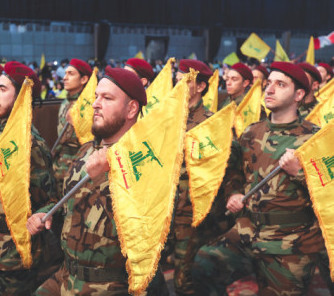Russia and Georgia have experienced their first ever trial in the International Court. The process itself which has become one more format of confrontation between Moscow and Tbilisi was officially named “The case of the International Convention on the Elimination of All Forms of Racial Discrimination”. Unofficially it is simply called “Georgia v. Russia”.
After the conclusion of hostilities in Abkhazia and South Ossetia, Tbilisi referred a claim to the International Court of Justice. The Georgian authorities accused Russia of racial discrimination and demanded to bring it to responsibility. In addition the ‘northern neighbor’ has been criticized not only for the events of August 2008, but also for the period since 1990, when Russia allegedly “directly and through its controlled structures of Abkhazia and South Ossetia discriminated the Georgian population in these republics.”
Having closely acquainted with the proceedings, one could find several obvious absurdities.
First, in 1990, neither Russia nor Georgia was subject of international law. At that point in time, de jure, they were still the two republics of the USSR. Meanwhile, the Russian authorities being involved in the confrontation with the allied center almost did not participate in the conflicts in Abkhazia and South Ossetia. Whereas Tbilisi, on the contrary, actively promoted the slogans about “the restoration of national independence” on basis of the Constitution of 1921 (which contained no autonomous rights for South Ossetia, as well as no concept of ‘South Ossetia’) and the elimination of all the legal heritage of the Soviet Union.
Secondly, the Georgian side in its accusation has completely taken out of context the peacemaking initiatives of the Russian Federation for resolving conflicts. It is known that in 1992 it was through intermediary of Moscow that bloodshed in South Ossetia had been stopped, after which mechanisms were set up in form of Mixed Control Commission and joint peacekeeping forces, which for 12 years have effectively provided not just a ceasefire, but also joint settlement of Ossetians and Georgian.
The same situation is about Abkhazia. It was Moscow that has played vital role in preventing many incidents. Due to intelligent actions of Russian peacekeepers, about 50,000 Georgians have returned to the Gali district of Abkhazia. And by way of the Sochi agreements between Tbilisi and Moscow in 2003, the Russian side acknowledged the need to continue the process of returning.
But in 2008, official Tbilisi had other plans: instead of solving difficult issues related to ethno-political conflicts, the Georgian side tried by the August scam to divert attention from its own failures and mistakes, and to accuse Russia of systematic and deliberate occupation of the territories of the independent state. In the same context one should consider the Georgia v. Russia claim, and the ‘occupied territories’ law, and official Tbilisi’s importunate tendency to requalify the two ethno-political conflicts into a permanent war with the ‘powerful northern neighbor’.
Of course, there is no sense to also deny the existence of ethnic excesses, and violence, and property losses incurred by the Georgians during the five-day war. Were added to the already large army of refugees. And in many cases these people turned out guilty though guiltless, sharing responsibility with the leadership of their country. Can we consider this is a humanitarian tragedy? Certainly. Yet it bears no relation to the alleged ‘discrimination’ and premeditated ethnic cleansing by Russia.
By the way, Russian lawyers have repeatedly pointed to their Georgian counterparts at the inadmissibility of the unhistorical and non-contextual approach to the law.
In fact, if Tbilisi has allegedly observed discrimination since 1990, why did not it raise this issue at the negotiating table? Moreover, before Saakashvili’s coming to power, the Georgian side had signed the tens if not hundreds of joint agreements with the Russian Federation. And within 18 years after the collapse of the USSR Tbilisi has never officially addressed with a request to the Committee on the Elimination of Racial Discrimination. Why indeed did the problem arise so dramatically and suddenly in August 2008?
Meanwhile, the mechanism for dealing with cases of racial discrimination within the framework of the UN is clearly spelled out and requires quite specific procedures after completing which one can file a lawsuit in the International Court of Justice in The Hague. Whereas Georgia in 2008 did not even identify them.
Of course, Tbilisi was not daunted by the International Court of Justice decision. Tbilisi is ready to continue fighting to the bitter end and has already announced a new possible trial. The Georgian side believes the International Court’s confirmation of the fact that Russia was not a third party in Georgia, but a conflicting one, to be its main ‘victory’.
Thus, Georgian hopes for Russia turning into a rogue state in world politics have not yet been realized. The publication of the report of the European Commission chaired by Heidi Tagliavini, the adjustment of PACE positions, a court decision in The Hague constitute links in one and the same chain, in which the events of August 2008 are represented not as a struggle of the forces of good and evil, but a complex and contradictory political process. There is room in it both for criticism, and even for hard and negative evaluations, but there is no possibility for primitive simplifications.









